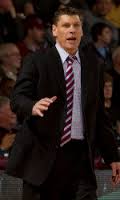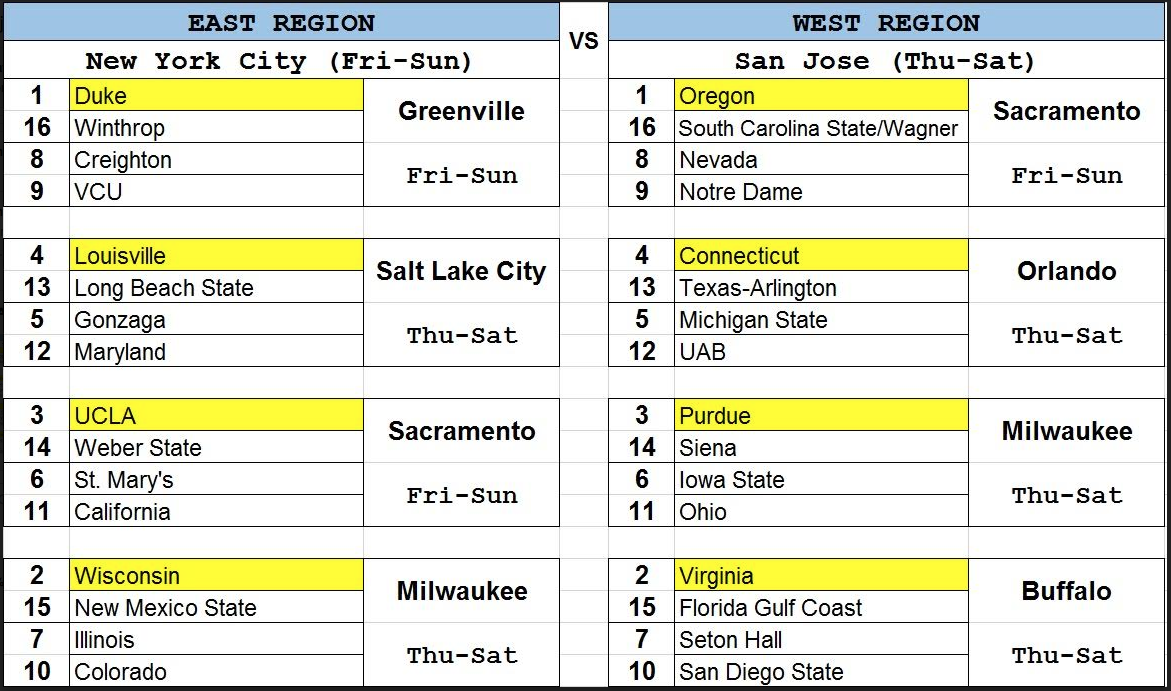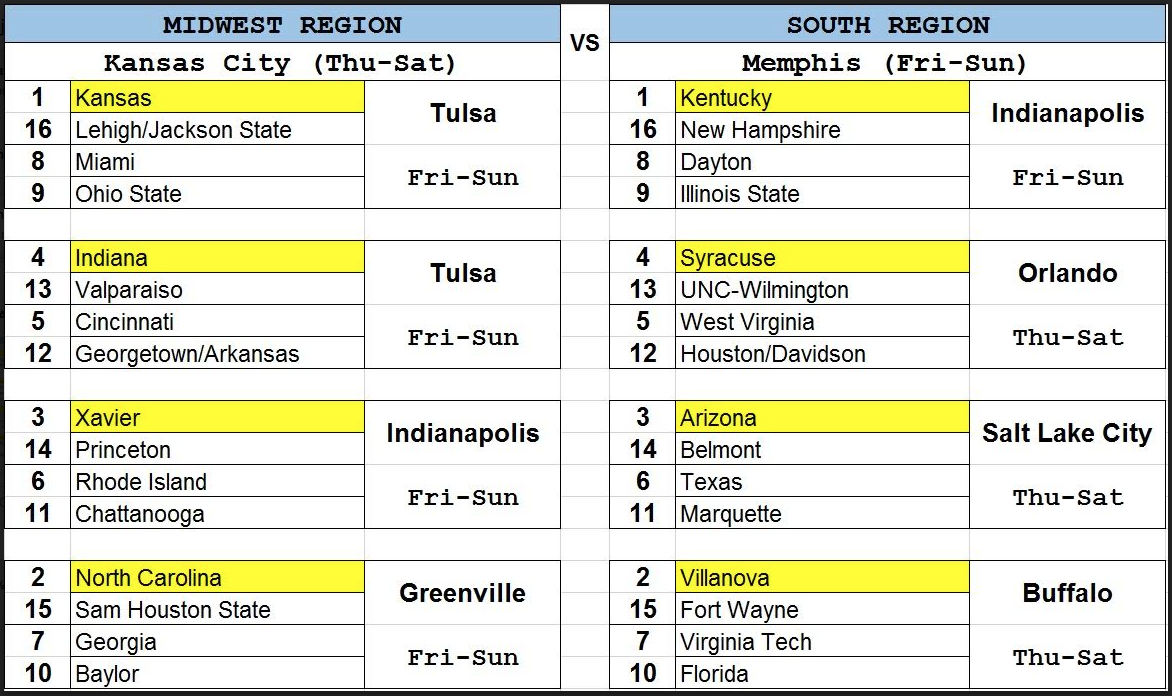We continue our 2016-17 season preview interview series with UNC-Asheville JR PG Kevin Vannatta. Last year he started all 30 games and led the Big South in minutes played. He does everything you need a PG to do: he makes shots from all over the floor (50 FG%), makes most of his shots from the FT line (80 FT%), and also led the team in AST. HoopsHD’s Jon Teitel got to chat with Kevin about playing a ton of minutes and facing the champs in the NCAA tourney.
You grew up in Ohio: what made you choose the Bulldogs? I ended up choosing UNC-Asheville because it was the best fit for me in terms of athletics/academics. They showed me during the recruiting process that I was a priority and they offered opportunities that some other schools did not.
You scored 7.6 PPG as a freshman: how were you able to come in and contribute right from the start? I just tried to come onto campus and compete from Day 1. As a freshman I focused on playing hard/tough and having the best attitude/effort. Once I found myself on the floor I just took good shots within the flow of the offense.
Last year you led the conference in total minutes played: how exhausted were you by the end of the season? When you are playing that amount of minutes the days in between games are crucial to getting your body recovered/ready for the next game: I spent a lot of time in ice baths last year! The coaches and I had great trust in one another so we could make sure that I was getting the proper treatment/preparation for games.
Your 79.5 FT% was #7 in the conference: what is the secret to making FTs? I think that the secret is a mix of practice/confidence. I try to consistently practice FTs all year and then I just trust in my practice, have faith in my routine, and shoot with confidence. I expect to make every one.
You were #2 on the team in PPG and #1 in AST: how do you balance your scoring with your passing? I do not look at it in those terms: I look at it as what I need to do to help the team. If the right play is to shoot then I shoot and if there is a teammate open then I pass. The most important thing to me has always been and will always be winning games.
In the 2016 Big South tourney title game you scored 12 PTS in a 9-PT win over Winthrop: what did it mean to you to win the title, and what was the reaction like when you got back to campus? Winning the conference championship was a dream come true. All of the hard work we had put in it finally paid off. Being able to climb that ladder and cut the nets down was something very special that I will remember forever. The city of Asheville went crazy: our school was a very fun place to be during both the conference tournament as well as the NCAA tournament a week or so later. The support we received from everybody was tremendous.
In the 2016 NCAA tourney you scored 5 PTS in a loss to eventual champion Villanova: what did you learn from that loss that you think can help you this year? I learned what an NCAA championship team looks/plays/acts like. They were such a talented, well-coached, disciplined team. The image of playing against them is still fresh in a lot of our minds so we can bring that toughness/attention to detail to the table this year. We have a better understanding of what it really takes.
You play for Coach Nick McDevitt: what makes him such a good coach, and what is the most important thing that you have ever learned from him? Coach Nick is a great coach because he has a fantastic understanding of the game and how to manage his players. Something he taught me that will stick with me for life is the list of our core values: TEAMS (Toughness, Effort, Attitude, Motives, Servant Leadership).
Your non-conference schedule includes road games against VCU/Georgia/Kansas/Ohio State: which of these games do you feel will present your biggest test? I think that all 4 of those games will be extremely difficult because all of those teams are tremendously talented, well-coached, and tough. We will have our hands full with each of those 4 as well as many more on our schedule for that matter. We look forward to those opportunities and when the night comes we will be ready to step onto the floor and compete.
What are your goals for the upcoming season, and what are your expectations for the upcoming season? Every year the goal is to win a regular season championship and win the conference tournament. My expectations are not measured in wins vs. losses, but rather that our team will compete everyday and be a tough, hard-nosed, hard-playing team. If we do that then we will give ourselves a great chance to win.







Throwback Thursday: The 1980 NCAA Tournament
For Chad Sherwood’s West Coast Conference Preview – CLICK HERE
For Jon Teitel’s interview with Loyola Ramblers head coach Porter Moser – CLICK HERE
For the countdown clock to tomorrow’s season opener – CLICK HERE
In the 2016-17 season premiere of Throwback Thursday, we look back at a major checkpoint year in the NCAA Basketball Tournament. The field consisted of 48 teams and was the second year in which teams would be formally seeded in each region. Most notably, this was the first season in which the restriction on the number of teams from a conference would be lifted.
For the ACC, this meant that North Carolina, Maryland, Duke, NC State and Clemson could all appear in the NCAA Tournament. For the Pac-10, Oregon State, Arizona State, Washington State and UCLA were invited. For the Big 10, Indiana, Ohio State, Iowa and Purdue were invited.
The East regional started harmlessly enough – the top 3 seeds of Syracuse, Maryland and Georgetown advanced to the Sweet 16 along with Iowa. Georgetown beat Maryland in a match of DC foes (just up the road in the Spectrum in Philadelphia), but Lute Olson’s Iowa team crashed the party with upset wins against Syracuse and Georgetown to clinch a bid to the Final Four in Indianapolis.
The Mideast regional started with Penn trying to pull a repeat Cinderella run – the Quakers were the 12th and final seed in the region but managed to upset Washington State in the first round. Duke would end Penn’s run with a 52-42 win in the 2nd round and would also stun top-seeded Kentucky 55-54 in the Sweet 16 at Rupp Arena in a revenge game from 2 years earlier in the 1978 national championship. Purdue (like Iowa earlier) took full advantage of their at-large status in the NCAA Tournament that would not have been available the year before. They beat La Salle and St. John’s to set up a matchup with Indiana in the Sweet 16. Purdue would also avenge their NIT championship loss to Indiana from the year before and beat Indiana 76-69. Purdue then defeated Duke to advance to the Final 4. After Duke’s loss, head coach Bill Foster moved on to South Carolina and opened the door for a young head coach at Army to become Duke’s next head coach. That coach, you ask? Mike Krzyzewski.
In the Midwest regional, this was as about as close as you could get to chalk holding up throughout the regional. Top-seeded LSU was able to advance to the Elite 8 with wins over Alcorn State and Missouri. Texas A&M was able to upset North Carolina in a double-OT game in the 2nd round, but would end up losing to Louisville in overtime in the Sweet 16. Even though Louisville and the Doctors of Dunk played in what amounted to a road game in Houston’s Summit against A&M, they had little trouble in knocking out LSU to earn the 3rd ticket to the Final Four.
The real Island of Misfit Seeds was in the West region. The top 3 seeds (DePaul, Oregon State, BYU) would all lose their opening games in the 2nd round despite 1st-round byes. UCLA upset DePaul in a rematch of the prior year’s West regional final and would beat Ohio State to advance to the Elite 8. Clemson beat Utah State and BYU in the first 2 rounds of the NCAA Tournament and beat the Cinderella team of Lamar in the Sweet 16. Lamar (coached by Billy Tubbs) was the 10th seed and scored upset wins over Weber State and Oregon State before bowing out to Clemson. UCLA would beat Clemson 85-74 to earn the 4th and final ticket to Indianapolis.
Despite being in the heart of Big 10 country, neither Iowa nor Purdue were able to win in their respective semifinal games. Purdue would defeat Iowa 75-58 in the 3rd place game, however. As for the other two teams, Louisville would edge out Iowa in the semifinal game and ended up defeating Larry Brown’s UCLA team in the national championship by a 59-54 score. Ultimately, if you go in the official history books at NCAA headquarters, you’ll also see “VACATED” because of NCAA violations against UCLA.
As for the 1980 Final Four, click here to see the official NCAA video.